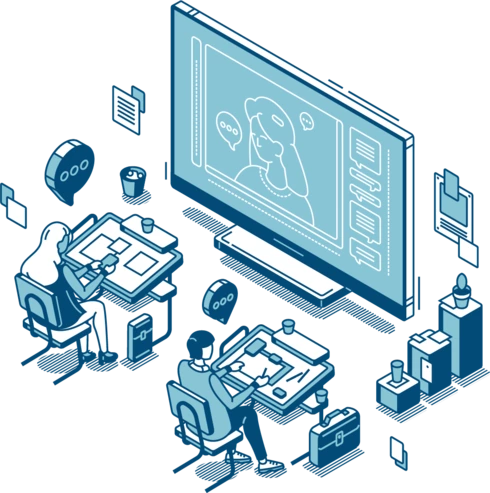Humanitarian needs analysis aims to make sense of available information and identify significant facts, trends, and anomalies to inform efficient and effective decision-making.
ACAPS approach
We have gained a strong reputation for our technical know-how and methodological transparency. Existing analysis training tends to focus on technical, statistical, and software-based analysis. We believe that analysis is more than that; we believe that it is a process that requires the application of cognitive functions, an inquisitive mindset, and the use of structured analytical techniques.
Humanitarian Analysis Learning Lab
Everyday humanitarians worldwide make life-saving decisions. In complex, fast-moving situations, it is hard to get a clear picture. Getting the right data, making sense of it, and providing evidence are crucial to ensuring that assistance reaches those most in need. The Humanitarian Analysis Learning Lab (HALL) supports the humanitarian sector to produce quality evidence and helps decision-makers make better use of it.
This project is currently paused due to the US funding freeze.
WHAT WE OFFER
Humanitarian Analysis Bootcamp
Humanitarian Analysis Bootcamp
The Humanitarian Analysis Bootcamp is a global, fully online, free-of-charge training for 200 participants. It mixes short self-paced modules, individual and group work, peer-to-peer learning, and facilitated live sessions.
The bootcamp relies on real-life humanitarian examples. It uses gamified teaching methods, videos, podcasts, and interactive facilitation techniques. We do not want learners to simply consume information; we want them to experience the material. Instead of just transferring knowledge, we help learners become better analytical thinkers.
Supporting Humanitarian Decision Makers
Supporting Humanitarian Decision Makers
The HALL project provides training for decision makers. Good and unbiased evidence is useful but not sufficient for more effective decision-making. It matters as well how decision makers process the evidence. The humanitarian decision-making process often appears like a black box, where evidence goes in and a decision comes out. HALL wants to open up the black box and help decision makers in the sector reflect on the underlying dynamics of humanitarian decision-making, mitigate biases, and make better and more effective use of evidence.
Alumni network
Alumni network
We believe that the quality of analysis improves and becomes less biased when analysts work together. There is a huge potential for sharing expertise and creating knowledge, peer support, and professional networking for the benefit of the whole sector and ultimately crisis-affected populations. This is why we want to connect and convene analysts by creating a common space for all HALL alumni. We will tap into these synergies by organising and encouraging initiatives such as local live events, webinars, roundtables, online fora, and other opportunities to share experiences and knowledge.
Tailored trainings
Tailored trainings
ACAPS has over a decade of experience as an independent analytical voice helping humanitarian workers make better-informed decisions and respond more effectively to disasters. We can tailor training sessions to your specific needs. From facilitating a one-hour online session to organising a one-week face-to-face workshop, we are happy to put together a program to support you in improving your organisation’s analytical capacity.
If you want to know more about this training programme, please contact us at info@acap.org
This training is part of the wider project Training Platform for Analytical Capacity in the Humanitarian Sector, kindly funded by USAID, from the American People, in collaboration with our partners at RedR UK.


